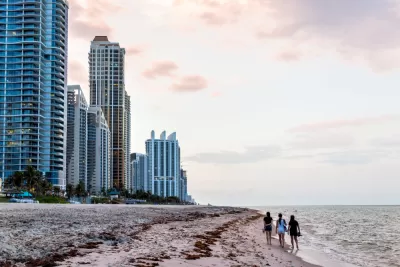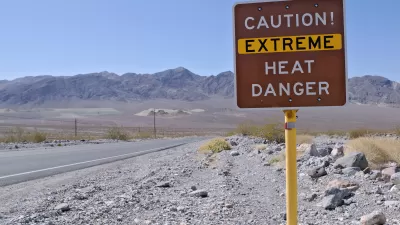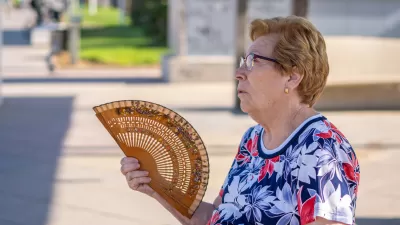The county’s plan addresses a range of infrastructure improvements and community resources that could limit the impacts of extreme heat waves.

Miami-Dade County has issued a new plan aimed at mitigating the effects of extreme heat in the region through infrastructure improvements and public education. David Volz reports on the story for Route Fifty. The Extreme Heat Action Plan, announced by the county’s mayor along with the Resilient305 partnership and the Miami Foundation, proposes “a combination of blue, green, and gray infrastructure to cool neighborhoods and communities.”
As Volz explains, “Miami-Dade is known for its vulnerability to hurricanes, but extreme heat causes more deaths and has a greater annual economic impact than any other weather-related disaster.” Roughly 34 people in the county die from heat-related causes every year.
One way officials plan to educate the public is to name extreme heat waves in the way hurricanes are named. Also, the county has begun retrofitting virtually all public housing units with efficient air conditioning and is working to expand the tree canopy, which is currently at 20 percent, to 30 percent by 2030.
The plan also suggests that the county develop “pilot programs of different types of cool pavements on walkways, bike paths, parking lots and low-volume roads, while working with the Federal Highway Administration and Florida Department of Transportation (FDOT) on similar pilots for higher-trafficked roads.”
In 2022, Miami-Dade County became one of the first government entities to hire a ‘heat officer,’ an official tasked with developing strategies for combating the effects of extreme heat.
FULL STORY: Miami-Dade Debuts Plan to Tackle Extreme Heat Problem

Maui's Vacation Rental Debate Turns Ugly
Verbal attacks, misinformation campaigns and fistfights plague a high-stakes debate to convert thousands of vacation rentals into long-term housing.

Planetizen Federal Action Tracker
A weekly monitor of how Trump’s orders and actions are impacting planners and planning in America.

In Urban Planning, AI Prompting Could be the New Design Thinking
Creativity has long been key to great urban design. What if we see AI as our new creative partner?

Pedestrian Deaths Drop, Remain Twice as High as in 2009
Fatalities declined by 4 percent in 2024, but the U.S. is still nowhere close to ‘Vision Zero.’

King County Supportive Housing Program Offers Hope for Unhoused Residents
The county is taking a ‘Housing First’ approach that prioritizes getting people into housing, then offering wraparound supportive services.

Researchers Use AI to Get Clearer Picture of US Housing
Analysts are using artificial intelligence to supercharge their research by allowing them to comb through data faster. Though these AI tools can be error prone, they save time and housing researchers are optimistic about the future.
Urban Design for Planners 1: Software Tools
This six-course series explores essential urban design concepts using open source software and equips planners with the tools they need to participate fully in the urban design process.
Planning for Universal Design
Learn the tools for implementing Universal Design in planning regulations.
planning NEXT
Appalachian Highlands Housing Partners
Mpact (founded as Rail~Volution)
City of Camden Redevelopment Agency
City of Astoria
City of Portland
City of Laramie





























